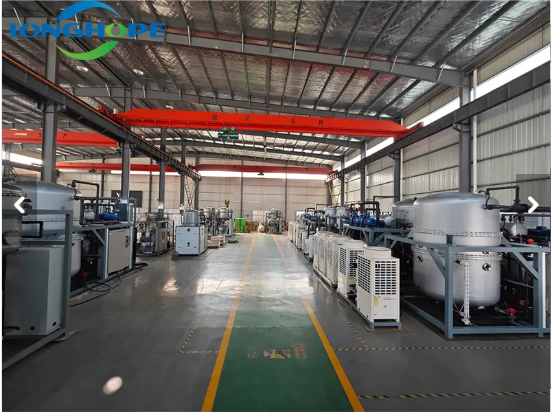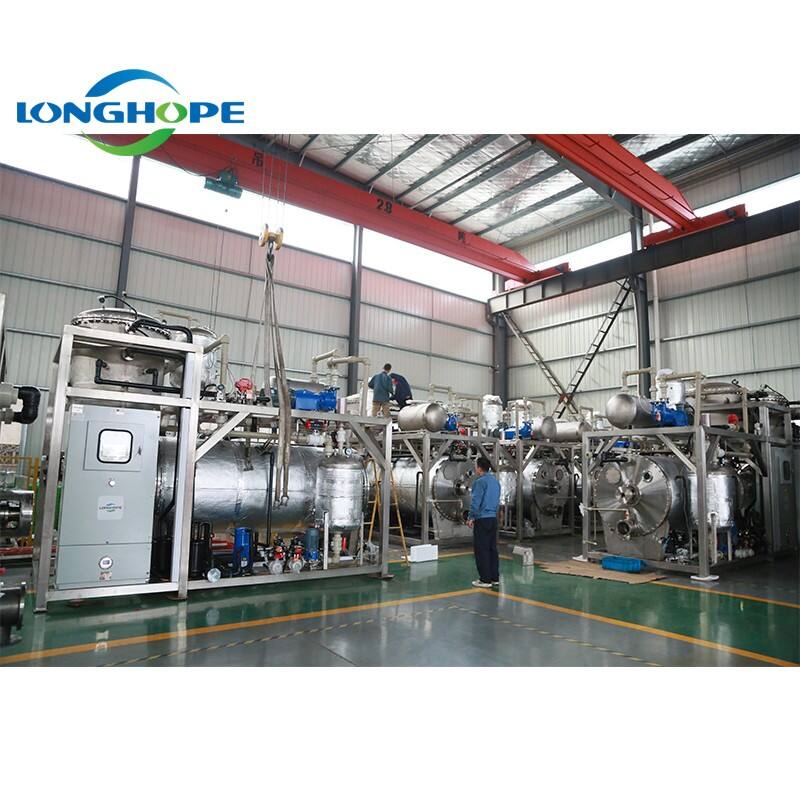Revolutionizing Industrial Processes Through Advanced Crystallization Technology
The evolution of crystallizer machines has fundamentally transformed industrial crystallization processes across multiple sectors. From pharmaceutical manufacturing to food processing and chemical production, these sophisticated devices have become instrumental in achieving precise crystal formation and product quality. As industries continue to demand higher purity standards and more efficient processes, the role of crystallizer machines has become increasingly central to modern manufacturing operations.
Modern crystallizer machines represent the culmination of decades of technological advancement, combining precise temperature control, advanced mixing capabilities, and automated monitoring systems. These innovations have made it possible to achieve unprecedented levels of consistency and efficiency in crystal formation, while simultaneously reducing operational costs and environmental impact.
Core Components and Operating Principles
Essential Mechanical Elements
At the heart of every crystallizer machine lies a carefully engineered system of components working in harmony. The crystallization vessel, typically constructed from high-grade stainless steel or specialized alloys, provides the primary environment where the crystallization process occurs. Advanced agitation systems, including precisely designed impellers and baffles, ensure optimal mixing and crystal suspension throughout the process.
The heat exchange system, another crucial component, maintains precise temperature control through a network of cooling or heating jackets. These systems often incorporate sophisticated sensors and controllers to maintain the exact conditions required for optimal crystal growth and uniformity.
Control Systems and Automation
Modern crystallizer machines leverage advanced control systems that monitor and adjust multiple parameters simultaneously. These systems track variables such as temperature, supersaturation levels, and crystal size distribution in real-time. Integrated automation platforms enable operators to maintain consistent conditions throughout the crystallization process, resulting in higher product quality and reduced variability.
The implementation of Industrial Internet of Things (IIoT) technologies has further enhanced the capabilities of crystallizer machines. Remote monitoring, predictive maintenance alerts, and data analytics now provide operators with unprecedented insight into their crystallization processes.
Advanced Applications Across Industries
Pharmaceutical Manufacturing Excellence
In pharmaceutical manufacturing, crystallizer machines play a pivotal role in active pharmaceutical ingredient (API) production. These specialized units enable precise control over crystal size, shape, and purity – critical factors in drug efficacy and bioavailability. Advanced crystallizer designs now incorporate features specifically tailored to meet stringent pharmaceutical manufacturing requirements, including cGMP compliance and complete batch traceability.
The latest crystallizer machines in pharmaceutical applications often feature integrated filtration systems and clean-in-place capabilities, streamlining the production process while maintaining the highest standards of product purity.
Chemical Processing Innovation
Chemical manufacturers utilize crystallizer machines for a wide range of applications, from bulk chemical production to specialty chemical synthesis. Modern crystallizers equipped with advanced mixing technologies and precise temperature control systems enable the production of crystals with specific characteristics required for various industrial applications.
The integration of advanced materials and corrosion-resistant designs has expanded the capability of crystallizer machines to handle aggressive chemical environments while maintaining operational efficiency and product quality.

Emerging Technologies and Future Developments
Artificial Intelligence Integration
The incorporation of artificial intelligence and machine learning algorithms represents a significant advancement in crystallizer machine technology. These systems can analyze historical process data to optimize operating parameters, predict maintenance needs, and adjust conditions in real-time to maintain optimal crystal quality. AI-driven crystallization processes have demonstrated remarkable improvements in yield and product consistency.
Future developments in AI integration are expected to enable even more sophisticated control strategies, including autonomous operation and self-optimizing systems that can adapt to changing process conditions without human intervention.
Sustainable Design Innovations
Environmental considerations have driven significant innovations in crystallizer machine design. Modern units incorporate energy-efficient components, improved heat recovery systems, and reduced water consumption features. Manufacturers are increasingly focusing on developing crystallizer machines that minimize environmental impact while maintaining high performance standards.
Recent advances in materials science have enabled the development of more efficient heat transfer surfaces and improved insulation systems, further reducing the energy requirements of crystallization processes. These innovations contribute to both environmental sustainability and operational cost reduction.
Maintenance and Optimization Strategies
Preventive Maintenance Protocols
Maintaining optimal performance of crystallizer machines requires comprehensive preventive maintenance programs. Regular inspection and maintenance of critical components, including agitators, heat exchange surfaces, and control systems, ensure consistent operation and prevent unexpected downtime. Modern crystallizer machines often include built-in diagnostic tools that help identify potential issues before they impact production.
Advanced monitoring systems can track equipment performance trends over time, enabling maintenance teams to schedule interventions based on actual equipment condition rather than fixed time intervals. This approach optimizes maintenance resources while maximizing equipment availability.
Process Optimization Techniques
Optimizing crystallizer machine operation involves careful attention to multiple process parameters. Modern control systems enable operators to fine-tune conditions for specific products and applications. Advanced analytical tools, including real-time particle size analysis and solution concentration monitoring, provide immediate feedback for process adjustment.
The implementation of digital twin technology allows operators to simulate and optimize processes before making changes to actual production parameters. This capability significantly reduces the time and resources required for process development and optimization.
Frequently Asked Questions
How do crystallizer machines maintain consistent crystal size distribution?
Crystallizer machines maintain consistent crystal size distribution through precise control of multiple process parameters, including temperature, supersaturation, and mixing conditions. Advanced control systems continuously monitor and adjust these parameters while sophisticated agitation systems ensure uniform conditions throughout the crystallization vessel.
What are the key factors in selecting the right crystallizer machine for specific applications?
Selection criteria include process requirements such as production capacity, crystal size specifications, and material compatibility. Other important considerations are energy efficiency, maintenance requirements, and the level of automation needed. The specific chemistry of the process and any special handling requirements should also be carefully evaluated.
How do modern crystallizer machines contribute to sustainable manufacturing?
Modern crystallizer machines incorporate energy-efficient designs, improved heat recovery systems, and reduced water consumption features. Advanced control systems optimize process efficiency, minimizing waste and energy use. Many units also include features for solvent recovery and recycling, further reducing environmental impact.

